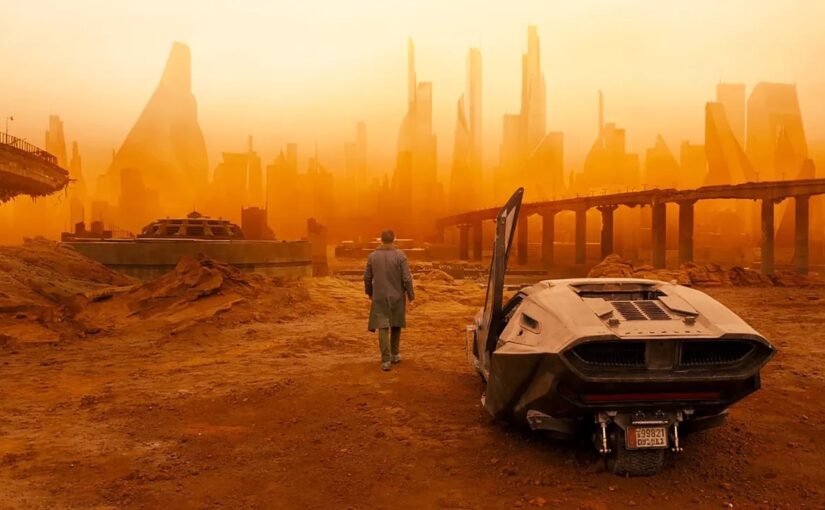“Blade Runner 2049” is a science fiction masterpiece that follows in the footsteps of its predecessor, Ridley Scott’s 1982 cult classic “Blade Runner.” Denis Villeneuve directs this film with a steady hand, and he brings an evocative vision to the screen that harkens back to Scott’s original work. While it may not have been a financial success at the box office, “2049” is a cinematic gem that will undoubtedly be reevaluated by audiences over time.
Ryan Gosling stars as K, a Blade Runner tasked with hunting down rogue replicants in a dystopian Los Angeles. Gosling’s subtle and nuanced performance is perfectly suited to his character’s emotional journey. K’s discovery of a child born from replicants sets in motion a series of events that lead him on a path of self-discovery and realisation.
The film is visually stunning, thanks to the masterful work of cinematographer Roger Deakins and production designer Dennis Gassner. The world of “2049” is a dark and foreboding place, but it is also one of great beauty and wonder. Deakins elegantly captures this world, creating a moody and immersive experience for the audience.
“2049” asks the same timeless question as its predecessor: what does it mean to be human? This theme runs through the film, and it is explored with a depth and complexity that is rarely seen in science fiction. The film’s deliberate pace and methodically structured narrative may not be to everyone’s taste, but those who give themselves over to the film’s world and themes will be rewarded with a truly exceptional cinematic experience.
In the end, “Blade Runner 2049” is a triumph of science fiction filmmaking. It takes risks, has visual ingenuity, and offers a thought-provoking exploration of the human condition. Just like the original “Blade Runner,” it may take time for audiences to fully appreciate the film’s brilliance. But there is no doubt that “2049” is a worthy successor to one of the greatest science fiction films of all time.
